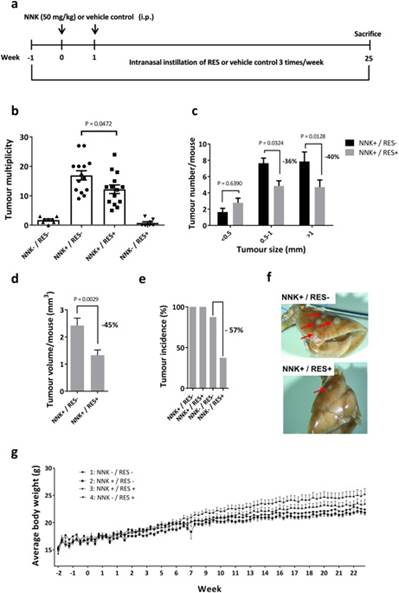葡萄中的白藜芦醇或能帮助有效抵御癌症
来源:《科学报告》
作者:Aymeric Monteillier等
时间:2018-11-13

肺癌是全球一种最具致死性的癌症,大约80%的肺癌死亡都与吸烟相关,除了进行烟草控制外,有效的化学预防策略也是需要的;近日,一项刊登在国际杂志Scientific Reports上的研究报告中,来自日内瓦大学的科学家们通过研究对葡萄和红酒中的一种天然产物—白藜芦醇进行了深入研究,此前很多研究都发现,抵御癌症的化学预防特性或会影响患者的消化道,而到目前为止,白藜芦醇对于肺癌并没有任何治疗作用。如今研究人员通过对小鼠进行研究发现,鼻腔给药或许会产生一些有潜力的治疗结果。
文章中,研究者尝试利用白藜芦醇治疗香烟中致癌物所诱导的小鼠模型机体中肺癌,在为期26周的研究中,研究人员对四组小鼠进行了对比研究,第一组为对照小鼠,其既没有接受致癌物也并没有接受白藜芦醇;而第二组则仅接受致癌物,第三组既接受致癌物也接受疗法,而第四组仅接受疗法;研究者Muriel Cuendet说道,在治疗组小鼠中,我们发现每只小鼠机体中肿瘤载量下降了45%,而且相比未治疗的小鼠而言,其机体肿瘤产生水平较低且尺寸较小。当研究人员将并未暴露于致癌物的两组小鼠进行对比后,相比未治疗的小鼠而言(12.5%),63%的治疗组小鼠并未患上癌症,因此白藜芦醇在抵御肺癌上或许扮演着一种非常关键的预防性角色。
这种模式适用于人类
然而,白藜芦醇似乎并不适合预防肺癌,当其被机体摄入后,就会在数分钟内被代谢并且消除功能,因此其并没有足够的时间到达机体肺部;这就是为何研究人员不断寻找特殊配方的原因了,即研究人员希望能在这种特殊配方中使得白藜芦醇大量溶于水,从而进行鼻腔给药;这种模式或许适合于人类,其能够到达肺部组织。
相比口服方式而言,通过鼻腔给药方式能够使得患者机体肺部中白藜芦醇的浓度能够达到前者的22倍,这种化学预防的机制似乎主要与细胞凋亡相关,后期研究人员将会通过更为深入的研究来寻找一种特殊的生物标志物,从而帮助研究人员选择哪些患者更适合于白藜芦醇的预防性疗法。
白藜芦醇是我们所熟知的保健品中的一种特殊分子,这意味着在其商业化之前研究人员并不需要进一步进行毒理学研究来作为一种预防治疗的手段,白藜芦醇非常便宜而且是非专利华的,当然了后期研究人员还需要进行更为深入的研究来评估其在癌症预防中扮演的关键角色。(来源:生物谷Bioon.com)
Intranasal administration of resveratrol successfully prevents lung cancer in A/J mice
Abstract Lung cancer is the most lethal cancer in the world. About 80% of lung cancer deaths are linked to tobacco use. As a complement to tobacco control, efficient chemoprevention strategies are needed to tackle lung cancer epidemic. Resveratrol is one of the most studied natural products, notably for its cancer chemoprevention properties. However, its low oral bioavailability has often limited the translation of in vitro activities to in vivo effects. While oral administration of resveratrol effectively inhibited colorectal carcinogenesis, it failed to protect mice from chemically-induced lung carcinogenesis. Therefore, non-invasive parenteral routes must be considered to bring resveratrol to the lungs. In the present study, intranasal administration of a concentrated formulation proved to be a valid method to expose the lungs to a sufficient amount of resveratrol. This formulation was administered three times a week for 25 weeks to A/J mice having 4-[methyl(nitroso)amino]-1-(3-pyridinyl)-1-butanone-induced lung carcinogenesis. Resveratrol-treated mice showed a 27% decrease in tumour multiplicity, with smaller tumours, resulting in 45% decrease in tumour volume/mouse. In vitro investigations highlighted apoptosis as a potential mechanism of action. This study presents an effective way to overcome resveratrol low oral bioavailability, encouraging a reevaluation of its use in future clinical trials.
原文链接:https://www.nature.com/articles/s41598-018-32423-0.pdf




